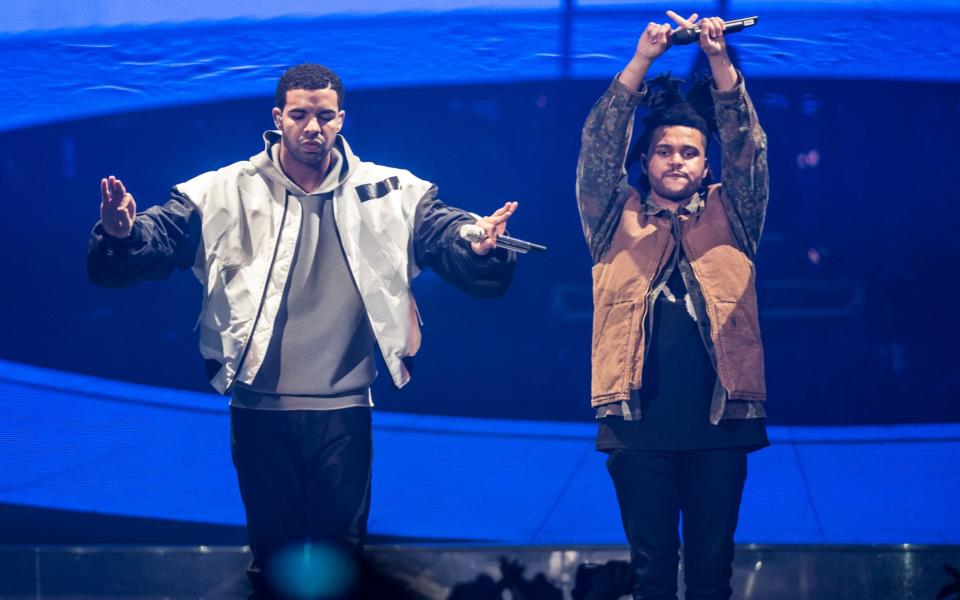Spotify and Apple pull AI-generated Drake song after warning over copyright breach

Spotify and Apple have removed a song that uses artificial intelligence (AI) to mimic Drake and The Weeknd from their streaming services after accusations of copyright violations.
Heart On My Sleeve, which clones the voices of the two best-selling artists, has racked up more than 20 million streams across Spotify, TikTok and Twitter in recent days.
The track quickly became an online sensation but has sparked a furious response from the music industry.
Universal Music Group, the record label representing both artists, said the song was “both a breach of our agreements and a violation of copyright law”.
It added that streaming platforms had a “legal and ethical responsibility” to ensure the use of generative AI did not harm artists.
Spotify and Apple, alongside TikTok and smaller streaming services Deezer and Tidal, have removed the song from their platforms. However, versions of it are still available on YouTube and Twitter.
The two-minute song, created by an artist known only as “Ghostwriter”, features simulated verses by Drake and The Weeknd which refer to the pop star and actress Selena Gomez.
Ghostwriter, who said the song was created by feeding existing songs by the artists into AI software, wrote on YouTube: “This is just the beginning.”
Universal, which publishes both artists through its Republic Records label, said it had always embraced new technologies.
But it added: “The training of generative AI using our artists’ music (which represents both a breach of our agreements and a violation of copyright law) as well as the availability of infringing content created with generative AI on DSPs [digital service providers], begs the question as to which side of history all stakeholders in the music ecosystem want to be on: the side of artists, fans and human creative expression, or on the side of deep fakes, fraud and denying artists their due compensation.
“These instances demonstrate why platforms have a fundamental legal and ethical responsibility to prevent the use of their services in ways that harm artists.”
It is not the first time nascent AI technology has been used to clone artists’ music. Other high-profile examples include a version of Adele’s “Easy On Me” that emulated the voice of Kanye West and a cover of a Beyoncé song using Rihanna’s vocals.
But the fake Drake song is the most successful so far in replicating the artists' real voices.
The rise of AI poses a major challenge to the music industry as labels grapple with complicated issues around copyright.
Music companies are concerned about copyright breaches in terms of both the output of AI-generated songs and the input of the tracks used to train the software in the first place.
Last week, the Financial Times reported that Universal had written to streaming services including Spotify and Apple calling for them to block AI services from scraping melodies and lyrics from copyrighted songs.

 Yahoo Finance
Yahoo Finance 